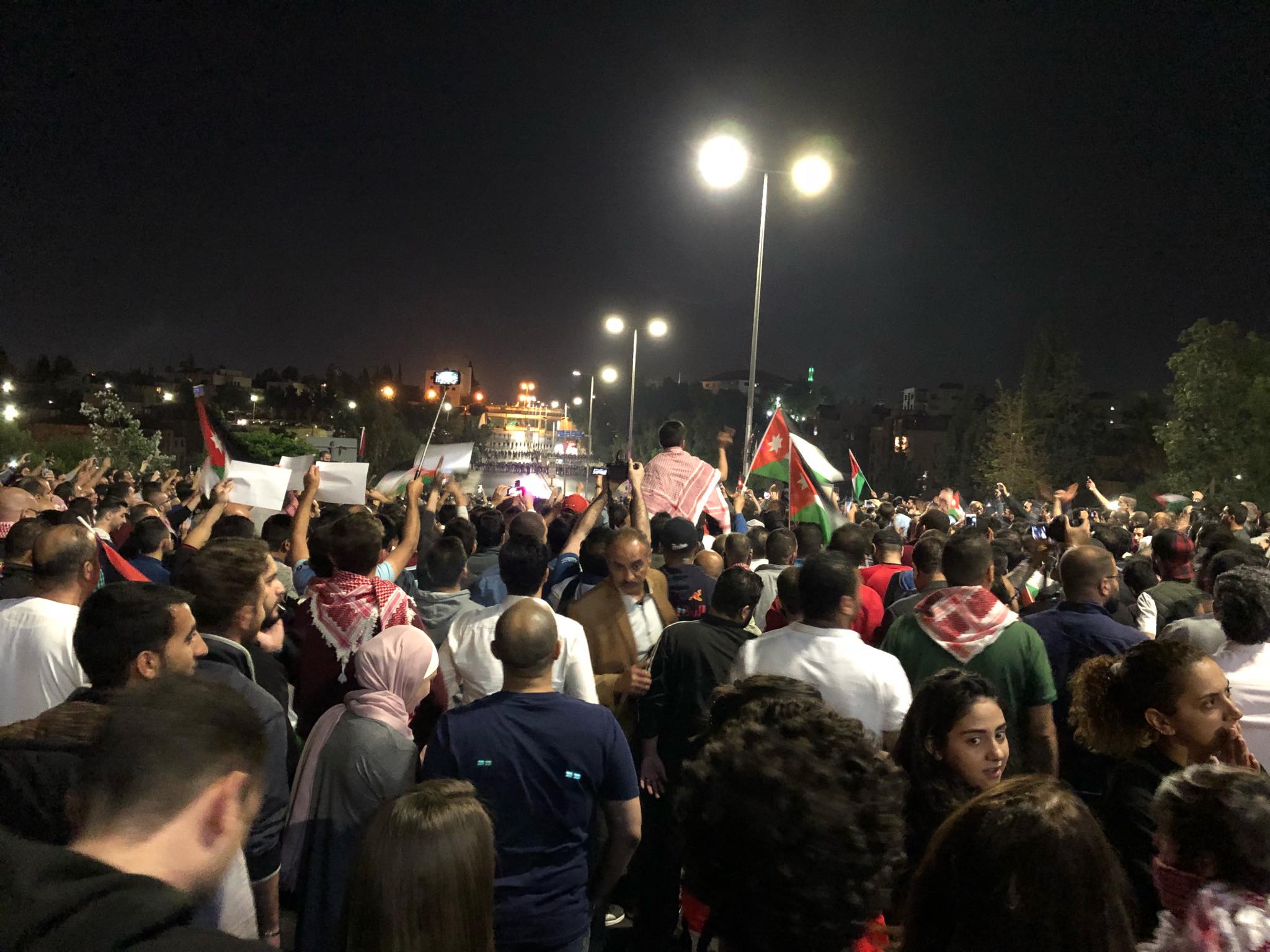by Matthew Petti

Protests in Amman, Jordan, 2018, Matthew Petti
A coalition of organized labor and civil society in Jordan led a successful mass movement this week, forcing the government to revoke an unpopular tax law and the Prime Minister to step down.
After the Jordanian monarchy attempted to impose new income taxes as part of an International Monetary Fund (IMF) austerity plan, the main trade unions and other groups staged two general strikes—one on May 31 and another on June 6. Opponents of the tax law also marched on government buildings in a non-violent, spontaneous protest.
The Hashemite Kingdom of Jordan, a Middle Eastern nation of around 10 million people, is facing a years-long economic crisis. The crisis began with the war in nearby Syria and Iraq, but worsened dramatically after the Gulf Cooperation Council, the alliance of wealthy monarchies led by Saudi Arabia and the United Arab Emirates, failed to renew a $3.6 billion aid package to Jordan.
Jordan, which hosts 89 refugees for every 1,000 inhabitants, was forced to take out a line of credit from the IMF. The IMF asked the Jordanian government to reduce its financial deficit by imposing new sales taxes in January, as well as reducing key subsidies. The bill proposed in May, which would impose new taxes on the poor, was meant to further reduce the deficit.

Protests in Amman, Jordan, 2018, Matthew Petti
On June 3, the embattled PM Hani al-Mulki stepped down. King Abdullah II—who directly appoints the Prime Minister—replaced Mulki with the charismatic Education Minister Omar Razzaz. But, without specific promises from the government, protests continued.
The police watched the demonstrations cautiously, as the government and royal court made gestures towards supporting freedom of speech.
On the night of June 7, protests outside the Prime Ministry gave way to celebrations as the Razzaz government asked the IMF to suspend implementation of the austerity plan.

Protests in Amman, Jordan, 2018, Matthew Petti
January’s tax increase and subsidy cut has not been reversed, and the underlying economic conditions that led to the protests remain. But for now, the movement cautiously waits and watches to see whether the Razzaz government will fulfill its promises.


Leave a Reply